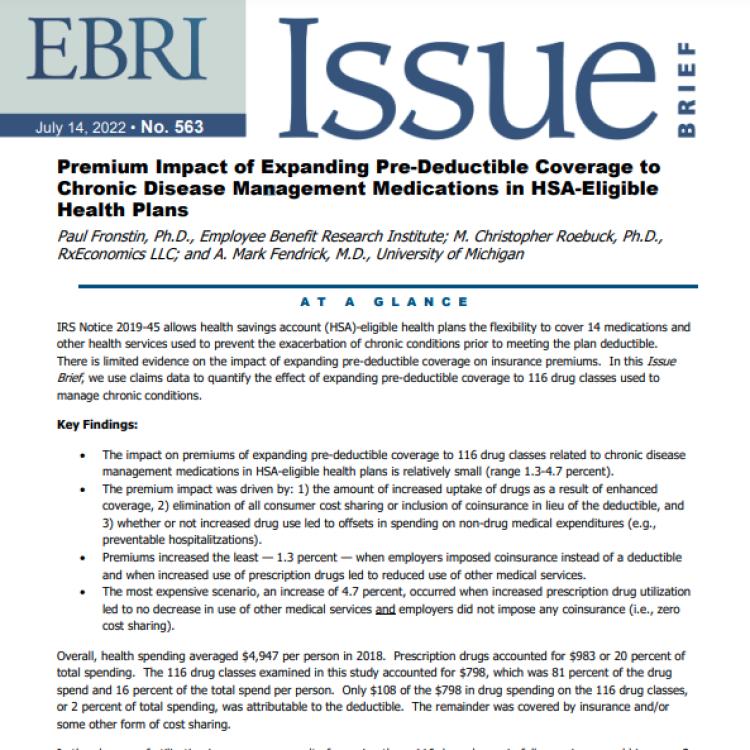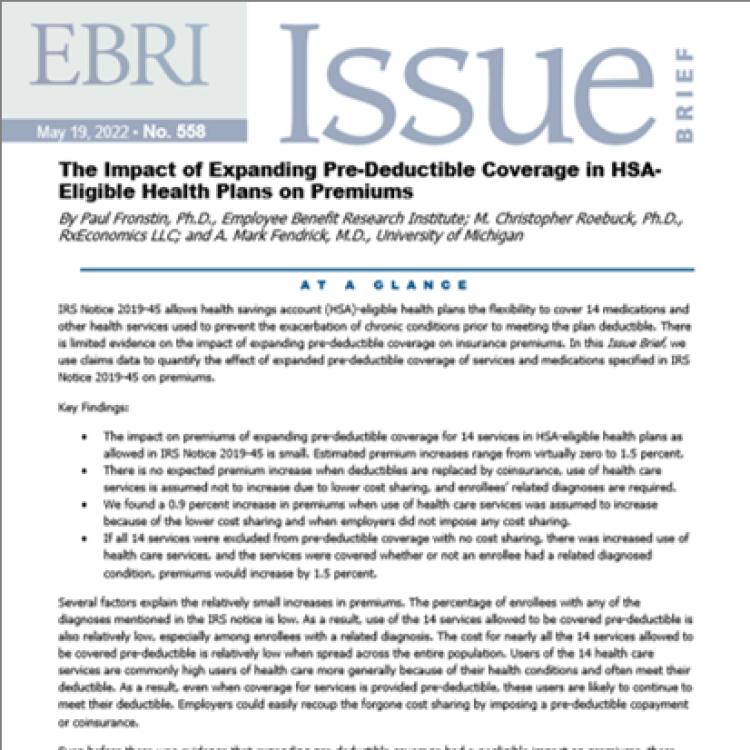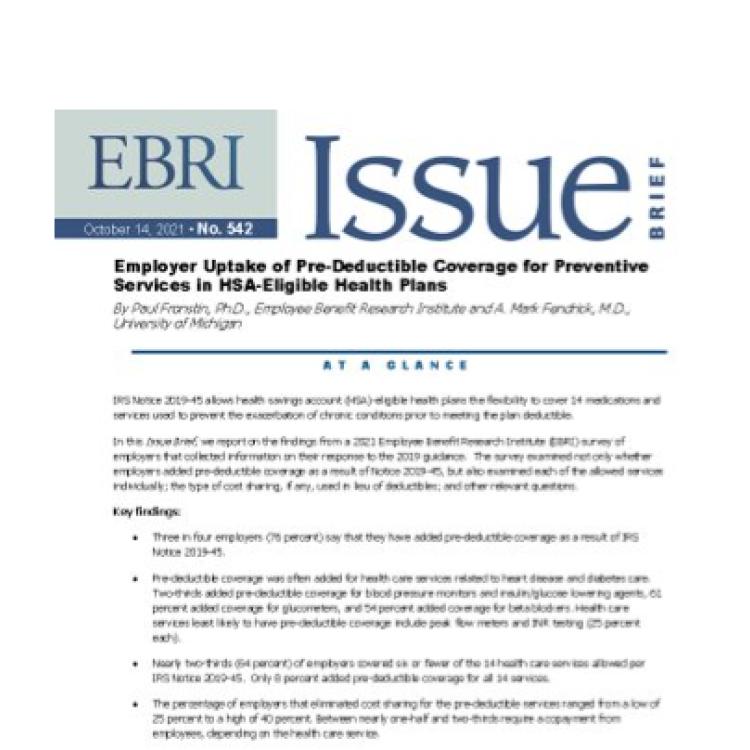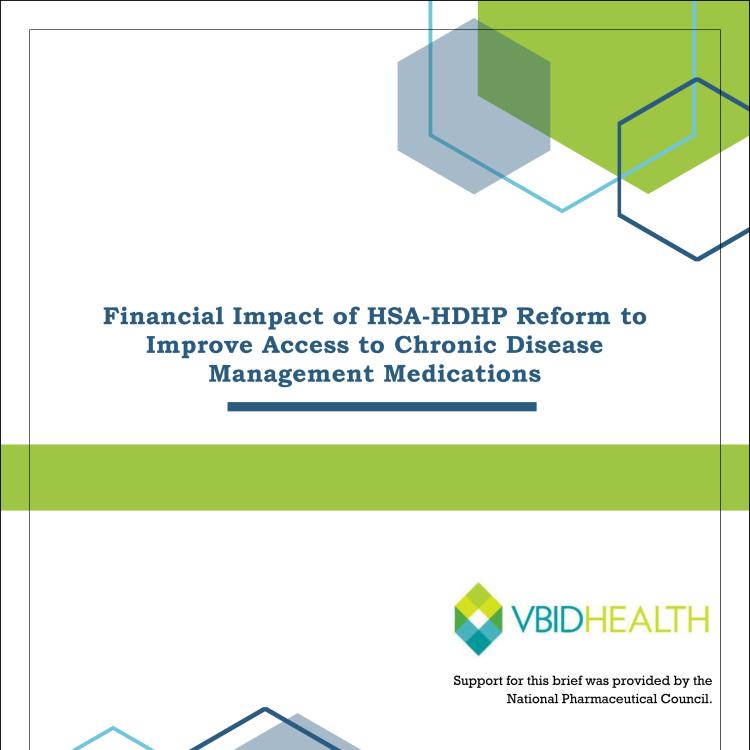AUTHORS
Paul Fronstin, PhD, Employee Benefit Research Institute, Christopher Roebuck, PhD, RxEconomics LLC, and A. Mark Fendrick, MD, University of Michigan
PUBLICATION
Employee Benefit Research Institute Issue Brief
Employee Benefit Research Institute Press Release
BACKGROUND
Under current law (IRS Notice 2019-45), Health Savings Account-eligible high deductible health plans offered by employers have the flexibility to cover 14 medications and other health services used to manage chronic conditions prior to meeting the plan deductible. Previous NPC-funded research found that in response to IRS Notice 2019-45, many large employers have expanded pre-deductible coverage for medications and health services used to prevent exacerbations of common chronic conditions and would like to further broaden this coverage.
This white paper builds on prior research that found that expanding pre-deductible coverage to include the 14 offered services under employer-led health plans would add few costs to health insurance premiums while lowering patient costs. This study further examined claims data to quantify the effect on premiums of expanding pre-deductible coverage to 116 drug classes used to manage chronic conditions.
KEY FINDINGS:
- The impact on premiums of expanding pre-deductible coverage to 116 drug classes related to chronic disease management medications in HSA-eligible health plans is small (range 1.3-4.7 percent).
- The premium impact was driven by: 1) the amount of increased uptake of drugs as a result of enhanced coverage, 2) the elimination of all consumer cost-sharing or inclusion of coinsurance in place of the deductible, and 3) whether increased drug use led to offsets in spending on non-drug medical expenditures (e.g., preventable hospitalizations).
- Premiums increased the least – 1.3 percent - when employers imposed normal member cost-sharing (coinsurance or copayment), and when increased use of prescription drugs led to reduced use of other medical services.
- Premiums increased the most - 4.7 percent - when increased prescription drug utilization led to no decrease in the use of other medical services and employers did not impose cost-sharing( e.g., zero coinsurance or copayments).
Even before there was evidence that expanding pre-deductible coverage had a negligible impact on premiums, employers had an appetite for adding more services if allowed by the IRS. There is also support for expanding pre-deductible coverage among policymakers, as evidenced by the Chronic Disease Management Act, which was reintroduced in the United States Congress as recently as May 2021. This bipartisan, bicameral legislation would provide HSA-eligible health plans additional flexibility to provide pre-deductible coverage for services that manage chronic conditions.




